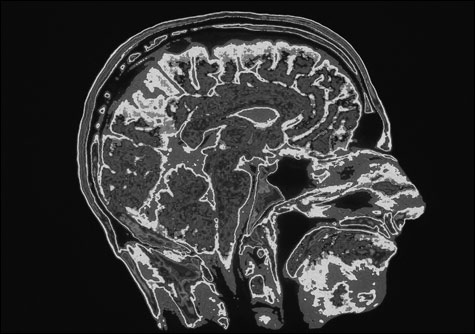
IS THERE A GOD SPOT? It all depends on how you look at the evidence. |
| Fingerprints Of God: The Search for the Science of Spirituality | by Barbara Bradley Hagerty | Riverside/Penguin | 336 pages | $26.95 |
"On June 14, 1995, around two in the afternoon, I lowered my guard. I opened myself up just barely to the notion that there might be a God who cares about me in the same way that Jesus cared about, say, his friend Mary. I prayed — and in that split second of surrender, I felt my heart stir and grow warm, as if it were changing. It was a physical thing, exquisite, undeniable."That's National Public Radio religion correspondent Barbara Bradley Hagerty describing, in Fingerprints of God, an experience she had while on assignment to write an article for the Los Angeles Times Sunday magazine about why baby boomers were flocking to evangelical churches. Four days earlier, she and a friend had been sitting on a bench outside Saddleback Valley Community Church when "I felt the hair on the back of my neck stand on end, and my heart start beating a little faster. . . . Gradually, and ever so gently, I was engulfed by a presence I could feel but not touch. I was paralyzed. . . . The episode left a mark on my psyche that I bear to this day."
It also left her wanting an explanation of what had happened to her. So Hagerty, who was raised and had spent most of her life as a Christian Scientist, starts exploring. She looks for the "God who breaks and enters" in the stories of those who have had similar mystical experiences. She talks with Columbia professor of behavioral medicine Richard Sloan about the possible effect of intercessory prayer. She goes "hunting for the God gene" with Dean Hamer, author of The God Gene, and Francis Collins, former head of the Human Genome Project and author of The Language of God. Boston University neurologist Pat McNamara predicts, "There's going to be a specific biology involved in religiosity."
She attends a Navajo peyote ceremony in Arizona while wondering whether there's a "God chemical." Or a "God spot," which we learn might be in the right temporal lobe of the brain. Andrew Newberg, radiologist and author of Why God Won't Go Away, determines that in contemplatives — like Buddhist monks and Catholic nuns — temporal-lobe activity increases while the parietal lobes shut down, whereas in those who speak in tongues, the opposite happens. After a chapter investigating near-death experiences, Hagerty concludes that Christianity has no monopoly on the road to God but finds that her faith in some kind of divine being has been strengthened.
Fingerprints of God would be more convincing if the fingerprints of the liberal feel-good side of NPR weren't all over it. Hagerty does adduce evidence of how the brain works in people who feel they're in contact with God. But science can't yet prove that they actually are — and you might wonder (as Collins seems to) what kind of God would be detectable by science. She's unsophisticated in both her theology (most of her ideas about Christianity seem to come from evangelicals) and her view that peer pressure inhibits scientists from professing any religion (not nearly as true as it used to be). And she gives greater credence to the spiritual seekers, who tell her what she wants to hear, than to the materialistic-atheist camp; there's an us-versus-them tone throughout. Still, the fingerprints are there, and if they're little smudged, they nonetheless suggest that the scientific winds aren't all blowing in Richard Dawkins's direction.